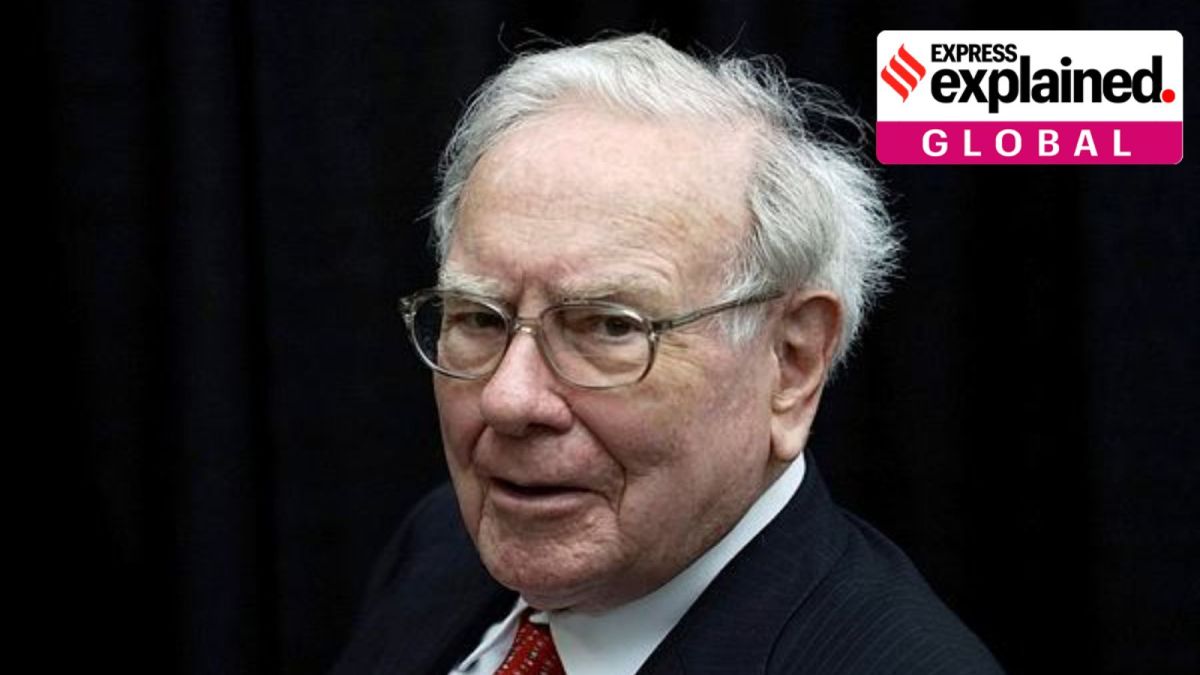Who is Warren Buffett, CEO of Berkshire Hathaway which attained a $1 trillion market cap?
Warren Buffett is well-regarded in investment circles for his acumen and business principles which have helped him amass at least $146 billion in personal wealth. His is also the only non-tech company to have hit the $1 trillion milestone.

American multinational conglomerate and holding company, Berkshire Hathaway became the first non-tech company to attain $1 trillion in market capitalisation on Wednesday (August 28). This comes mere weeks after the company sold nearly half of its shares in Apple, which led to it amassing $280 billion in cash holdings.
Known as the Oracle of Omaha, Buffett is well-regarded in investment circles for his insight and acumen which has helped him accumulate a personal fortune of $146 billion, according to Forbes.
A keen mind for business
Born in 1930 to congressman and stockbroker Howard Buffett, Warren took a keen interest in business early in life. He made his first investment as a 14-year-old, using up his savings from selling soft drinks and newspapers to buy 40 acres of land, which he then rented.
Buffett completed his Bachelor’s in Business Administration from the University of Nebraska, and later pursued his Master’s in Economics from Columbia University, following a rejection from Harvard Business School. His stints as an investment analyst at his father’s firm, Buffett-Falk & Co. in 1951-54 and as a securities analyst at Graham-Newman Corp. in 1955-56, as well as a few investment partnerships, were immensely successful: he was already a millionaire as a 30-year-old in 1962.
He met Charlie Munger in 1959, who would become a life-long collaborator and fellow advocate of value investing. Together, the duo in 1965 would revitalise Berkshire Hathaway, then a struggling textile company in New England, first by using its earnings to fund other investments, and then as a brand that would become a holding company once the textile business was closed.
Today, Buffett is regarded as a maverick investor driven by business principles that rely on a steady, thorough analysis of the market. Foremost of these principles is value investing.
Value investing
While in Columbia, he was mentored by Benjamin Graham who is regarded as the father of value investing. Buffett would become the fiercest advocate of this principle, which involves selecting stocks that may be underestimated by the stock market and seem to be trading at less than their intrinsic value.
This is based on an understanding of the stock market’s volatility, which results in ‘overreactions’ that may not indicate a company’s long-term fundamentals. Value investors stand to profit by purchasing stocks at discounted prices, and are generally long-term investors of high-quality companies.
How Berkshire Hathaway became such a valuable company
Buffett’s acquisition of the textile business was driven by spite, following a failed transaction with its previous owner, Seabury Stanton. He quickly realised that acquiring a textile business was a futile endeavour given the limited opportunities for growth in this industry, and sought to diversify his holdings.
Relying on the value investing principle he sought out such companies which seemed to be underdogs in the field — experiencing a spot of trouble even as their business fundamentals remained sound. Thus Berkshire came to acquire a diverse array of companies such as GEICO, Fruit of the Loom, Coca-Cola, Duracell and the World Book Encyclopaedia.
Over the years Buffett has invested in companies for the long haul with the intent of holding on to his investments long enough to see them appreciate over time. Munger, who joined Berkshire Hathaway as its vice chairman in 1978, described their shared philosophy for investment thus, “We have three baskets for investing: yes, no, and too tough to understand.”
For a long time, this meant avoiding investments in tech companies, a move that bore fruit when Berkshire stayed steady during the Dot Com Boom and Bust of the late 90s-early aughts. However, he reversed this position in 2016 when he began buying Apple shares, driven by the devotion Apple users show to their devices and viewing the company itself as a “moat,” a business that does not stand to lose its market share while open to growing profit margins.
Buffett has often credited Munger with directing him away from “cigar-butt” investments, mediocre companies that were about to shut shop and could be readily snatched up. “The blueprint he gave me was simple: forget what you know about buying fair businesses at wonderful prices; instead, buy wonderful businesses at fair prices,” Buffett wrote to shareholders in 2015.